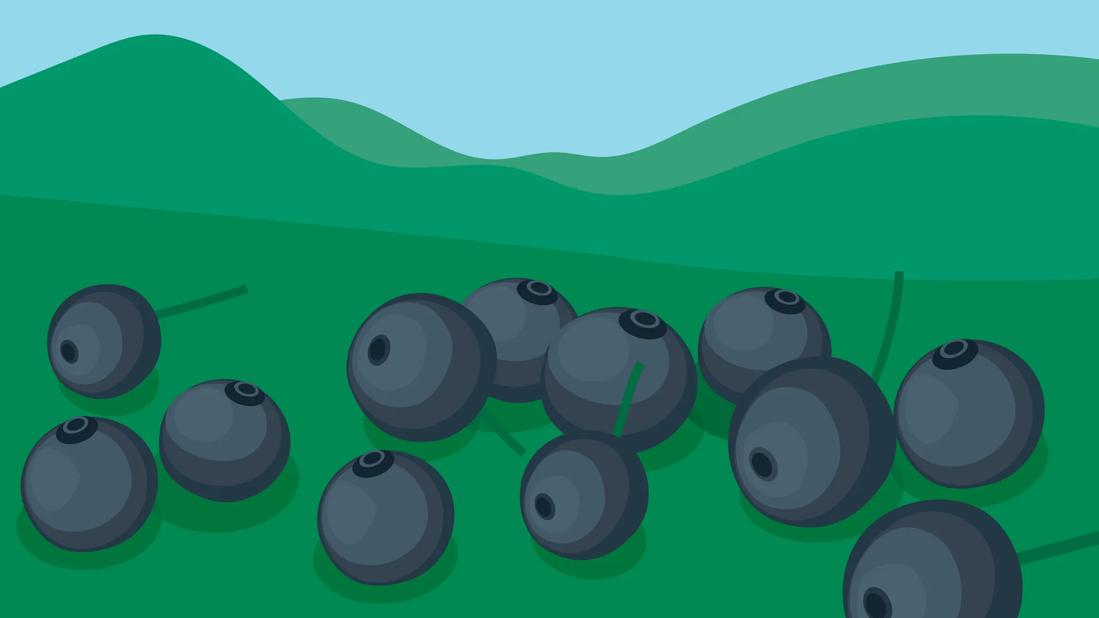
Black currants may be one of the healthiest berries you’re not eating. These small, dark fruits are packed with vitamin C, fiber and antioxidants that support your heart, skin, eyes and more.
Advertisement
Cleveland Clinic is a non-profit academic medical center. Advertising on our site helps support our mission. We do not endorse non-Cleveland Clinic products or services. Policy
Looking to mix up your fruit routine — and give your body a nutritional boost? Julia Zumpano, RD, LD, explains why black currants are worth a try.
What are black currants?
Black currants (Ribes nigrum, also called blackcurrants or cassis) are dark purple berries that grow on shrubs. They look like very dark blueberries. While there are also red and white varieties, black currants are the most popular.
Native to Europe and Asia, black currants now grow in parts of the U.S., especially in the Northeast and Pacific Northwest.
Ripe berries taste bold and sweet, while unripe ones are more tart. Each one contains a tiny, edible seed.
Nutritional value of black currants
A cup of black currants has about 63 calories and these healthy nutrients:
- Vitamin C: 203 milligrams (226% of your daily value or DV)
- Fiber: 4.4 grams (16% DV)
- Iron: 1.54 milligrams (9% DV)
- Potassium: 332 milligrams (7% DV)
Health benefits of black currants
Antioxidants and nutrients in black currants protect your health in many ways.
1. May lower heart disease risk
Black currants are loaded with antioxidants, including phytonutrients and polyphenols. They get their deep color from anthocyanins, a flavonoid that also has antioxidant benefits.
“Antioxidants fight free radicals, molecules that can damage cells and lead to inflammation, cancer and other diseases,” Zumpano explains.
Advertisement
Studies show anthocyanins may improve cholesterol and triglyceride levels, helping lower your risk of severe heart disease.
2. Supports eye and skin health
One cup of black currants has more than twice the vitamin C of a large orange. “This water-soluble vitamin passes quickly through your body, so it’s important to get enough of it every day,” says Zumpano.
Vitamin C helps:
- Absorb iron
- Build collagen for wound healing
- Protect against cataracts and wet age-related macular degeneration (AMD)
- Reduce inflammation and cell damage
3. Helps fight inflammation
Black currants are a rich source of gamma-linolenic acid (GLA), an omega-6 fatty acid known for its anti-inflammatory effects.
GLA may help:
- Ease joint inflammation from arthritis
- Regulate metabolism
- Stimulate skin and hair growth
- Strengthen bones
- Support brain and reproductive health
4. May aid workout recovery
One study of triathletes found that black currant powder helped reduce lactic acid buildup, leading to faster recovery. Researchers think anthocyanins may improve blood flow and reduce muscle fatigue.
Are black currants safe?
For most people, black currants are a safe and healthy choice. But they may not be right for everyone:
- If you take blood thinners: As black currants contain GLA, they may slow blood clotting and increase bleeding risk.
- If you take blood pressure medication: Black currants may improve blood flow a little too much, causing your blood pressure to drop too low.
Talk to your healthcare provider if you take these medications or have concerns about adding black currants to your diet.
How to enjoy black currants
You can eat black currants just like any other berry:
- Bake them into muffins or pies.
- Blend them into smoothies.
- Stir them into yogurt or cereal.
- Try them dried in a trail mix.
- Use them in jams, syrups or juices.
In Europe, black currant is the go-to flavor in many purple candies and drinks — often instead of grape. You might even spot a U.K. black currant soda at your local grocery store.
They’re also the key ingredient in crème de cassis, a dark red French liqueur.
Supplements with black currant seed oil are available, too — but talk to your provider before adding this (or any) supplement to your routine.
“Black currants haven’t been widely available in the U.S., so there’s limited research on supplement safety,” clarifies Zumpano. “You’ll get more health benefits from eating fresh fruits and vegetables.”
Go with the ‘currant’
Whether you stir them into yogurt or bake them into muffins, black currants are a flavorful way to boost your nutrition.
“Black currants are a smart pick if you want to shake up your usual fruit routine,” encourages Zumpano. “They’re bold, tasty and packed with benefits.”
Advertisement
Advertisement
